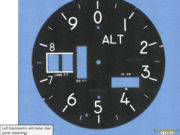In the aftermath of the in-flight upset of a Qantas Boeing 747 en route from Melbourne, Australia, to Beijing, the airline has incorporated additional complex stall warning recovery events into recurrent training for its 747 pilots, the Australian Transport Safety Bureau (ATSB) says.
The ATSB said Wednesday that, after the April 7, 2017, incident, Qantas retrained all 747 flight crews in stall warning recovery scenarios, changed ground school lesson plans to “ensure flight crews were adequately prepared to recover from stall warning activations at high altitudes or with engine power above idle,” and modified flight crew training manuals.
The measures also were applied to Qantas 737s and 787s, the ATSB said.
The 2017 incident occurred about 110 km (59 nm) southeast of Hong Kong during descent, after air traffic control told the flight crew to hold at a waypoint.
“When entering the holding pattern, the aircraft’s aerodynamic stall warning stick shaker activated a number of times and the aircraft experienced multiple oscillations of pitch angle and vertical acceleration,” the ATSB said.
Several passengers and flight attendants received minor injuries when they struck the ceiling or cabin furnishings during the upset, the ATSB said.
“The ATSB found that while planning for the descent, the flight crew overwrote the flight management computer-provided hold speed,” the agency said. “After receiving a higher-than-expected hold level, the flight crew did not identify the need to reevaluate the hold speed. This was likely because they were not aware of a need to do so, nor were they aware that there was a higher hold speed requirement above Flight Level 200 [approximately 20,000 ft.]”
The report said that, before the 747 entered the hold, the speed was below both the selected airspeed and the minimum maneuvering speed, but “the crew did not identify the low speed as their focus was on other operational matters.”
The investigation also determined that the pilot flying, in an attempt to keep the airplane in the holding pattern, had attempted to halt the rate of descent before completing approach to stall actions; the pilot monitoring did not call out these actions.
“This led to further stall warning stick shaker activations and pilot-induced oscillations,” the ATSB said.
The investigation concluded that the flight crew had “limited training and guidance for stall warning recovery techniques at high altitude or with engine power above idle. Inconsistencies were also found in flight crew training of the awareness of the need to reevaluate holding speed when there are changes in altitude, especially above Flight Level 200.”


